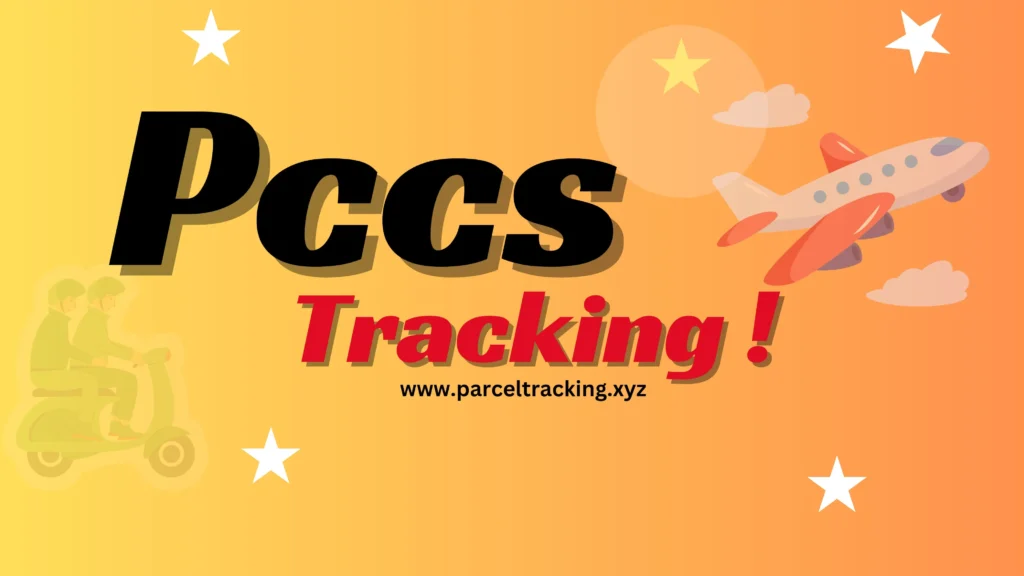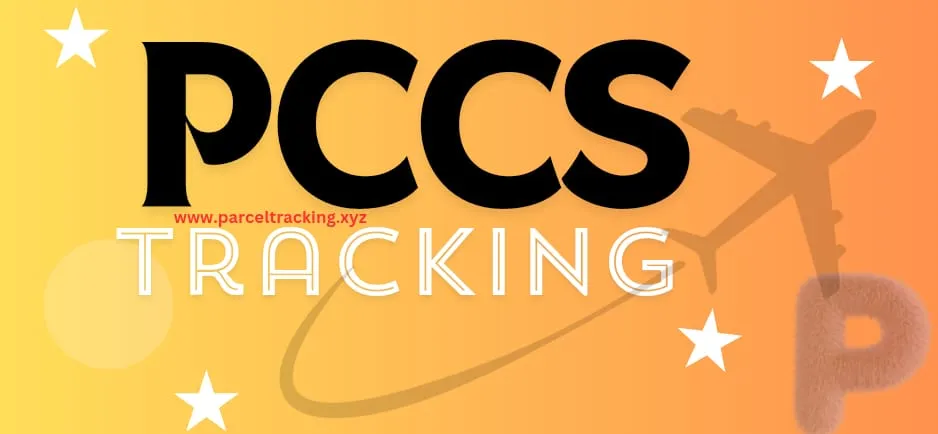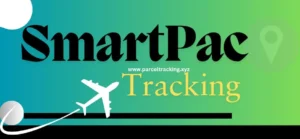PCCS Tracking is a fascinating technological system that helps businesses and organizations monitor and manage various assets, processes, and movements with incredible precision. Imagine having a superpower that lets you know exactly where something is, how it’s moving, and what’s happening to it in real time. That’s essentially what PCCS tracking does!
What Does PCCS Stand For?
While the exact meaning of PCCS can vary depending on the specific industry or application, it typically relates to Precise Comprehensive Coordination Systems. These tracking technologies have become incredibly important in our fast-moving, data-driven world.
The Basics of Tracking Systems
Tracking systems are like digital detectives that collect and analyze information about the location, status, and movement of objects or people. They use various technologies to gather this information, including:
- GPS (Global Positioning System)
- Radio Frequency Identification (RFID)
- Bluetooth Beacons
- Cellular Network Tracking
- Satellite Communications
How Tracking Works: A Simple Explanation
Think of a tracking system like a digital map with a special marker. This marker moves around in real time, showing exactly where something is located. It’s similar to how you might track a pizza delivery on your phone, but much more advanced and precise.
Key Applications of PCCS Tracking
1. Logistics and Transportation
Companies use PCCS tracking to:
- Monitor delivery vehicles
- Optimize route planning
- Ensure package safety
- Reduce transportation costs
2. Healthcare Management
Hospitals and medical centers utilize tracking systems to:
- Track medical equipment
- Monitor patient movement
- Manage inventory of critical supplies
- Ensure efficient hospital operations
3. Supply Chain Management
Businesses leverage tracking technologies to:
- Track inventory in real-time
- Predict potential supply disruptions
- Improve warehouse efficiency
- Reduce lost or misplaced items
4. Fleet Management
Transportation and delivery companies use tracking to:
- Monitor vehicle locations
- Track driver performance
- Ensure vehicle maintenance
- Improve overall operational efficiency
Technical Components of PCCS Tracking
Hardware Elements
Tracking hardware typically includes:
- GPS Devices
- RFID Tags
- Cellular Transponders
- Satellite Communication Units
- Bluetooth Sensors
Software Components
Tracking software provides:
- Real-time data visualization
- Comprehensive reporting
- Predictive analytics
- Alert and notification systems
Benefits of Implementing PCCS Tracking
Improved Efficiency
- Reduces manual monitoring
- Provides instant information
- Minimizes human error
Cost Reduction
- Optimizes resource allocation
- Prevents unnecessary expenses
- Improves operational planning
Enhanced Security
- Real-time threat detection
- Asset protection
- Comprehensive monitoring
Data-Driven Decision Making
- Provides actionable insights
- Supports strategic planning
- Enables precise performance measurement

Challenges in PCCS Tracking
While tracking technologies offer numerous advantages, they also present some challenges:
Privacy Concerns
- Potential misuse of tracking data
- Need for strict data protection protocols
- Balancing monitoring with individual privacy rights
Technical Limitations
- Signal interference
- Battery life of tracking devices
- Coverage limitations in remote areas
Implementation Costs
- Initial investment in technology
- Ongoing maintenance expenses
- Training personnel
Future of PCCS Tracking
Emerging technologies are continuously improving tracking systems:
- Artificial Intelligence integration
- Machine Learning algorithms
- Advanced Sensor Technologies
- Quantum Positioning Systems
Predicted Innovations
- More precise tracking capabilities
- Lower implementation costs
- Enhanced data security
- Broader application across industries
Choosing the Right Tracking Solution
When selecting a PCCS tracking system, consider:
- Your specific industry needs
- Budget constraints
- Scalability
- Technical support
- Integration capabilities
Evaluation Criteria
- Accuracy of tracking
- Update frequency
- User interface
- Reporting capabilities
- Compliance with industry standards
Key Takeaways
- PCCS tracking offers comprehensive monitoring solutions
- Multiple industries benefit from advanced tracking technologies
- Continuous technological improvements enhance tracking capabilities
Advanced Tracking Methodologies
Precision Tracking Technologies
Precision tracking has revolutionized how organizations monitor and manage assets. Modern PCCS tracking systems go far beyond simple location monitoring, offering:
- Multi-dimensional Data Collection
- Real-time Performance Metrics
- Predictive Analytics
- Comprehensive Situational Awareness
Technological Foundations
The core of advanced tracking technologies includes:
- Sensor Fusion Techniques
- Combines multiple data sources
- Increases tracking accuracy
- Provides comprehensive insights
- Advanced Triangulation Methods
- Uses multiple reference points
- Improves location precision
- Reduces tracking errors
Industry-Specific Tracking Applications
Manufacturing Sector
In manufacturing, PCCS tracking transforms operational efficiency:
- Equipment Monitoring
- Track machine performance
- Predict maintenance needs
- Reduce downtime
- Production Line Management
- Real-time product tracking
- Quality control integration
- Inventory optimization
Agricultural Innovations
Farmers leverage tracking technologies to:
- Monitor crop health
- Track livestock movement
- Optimize resource allocation
- Improve agricultural productivity
Emergency Services
Critical applications include:
- First Responder Tracking
- Disaster Response Coordination
- Resource Allocation
- Safety Management
Advanced Technical Architectures
Connectivity Frameworks
Modern tracking systems utilize:
- 5G Network Integration
- Cloud-Based Data Processing
- Edge Computing Technologies
- Secure Communication Protocols
Data Security Considerations
Implementing robust security measures:
- Encryption Protocols
- Secure Authentication
- Data Anonymization
- Compliance with Privacy Regulations
Emerging Technological Trends
Artificial Intelligence Integration
AI-powered tracking systems offer:
- Predictive maintenance
- Automated decision-making
- Advanced anomaly detection
- Intelligent resource optimization
Machine Learning Applications
Machine learning algorithms enhance tracking by:
- Improving prediction accuracy
- Identifying complex patterns
- Reducing human intervention
- Adapting to changing environments
Economic Impact of Advanced Tracking
Cost-Benefit Analysis
Tracking technologies provide:
- Significant operational savings
- Improved resource allocation
- Enhanced productivity
- Reduced operational risks
Investment Considerations
Key factors for organizational implementation:
- Initial technology investment
- Long-term efficiency gains
- Scalability of solutions
- Competitive advantage
Global Tracking Standards
International Regulatory Frameworks
Important considerations:
- IEEE Tracking Standards
- International Telecommunications Union Guidelines
- Data Protection Regulations
- Industry-Specific Compliance Requirements
Psychological and Ethical Dimensions
Privacy and Consent
Critical ethical considerations:
- Individual privacy rights
- Transparent data usage
- Informed consent mechanisms
- Ethical tracking practices
Psychological Impact
Understanding tracking’s human dimensions:
- Perception of surveillance
- Trust in technological systems
- Psychological boundaries
- Cultural variations in acceptance

Training and Skill Development
Professional Competencies
Essential skills for tracking professionals:
- Data Analysis
- Technical Understanding
- Critical Thinking
- Technological Adaptability
Educational Pathways
Recommended learning tracks:
- Computer Science
- Data Engineering
- Information Systems
- Cybersecurity
Future Trajectory
Predicted Technological Evolution
Anticipated developments:
- Quantum Positioning Systems
- Holographic Tracking Interfaces
- Neuromorphic Computing
- Autonomous Tracking Ecosystems
Conclusion
PCCS tracking represents a dynamic, evolving technological landscape. Organizations must remain adaptable, ethical, and innovative as systems become more sophisticated.
Final Insights
- Continuous technological advancement
- Balancing innovation with ethical considerations
- Preparing for future tracking paradigms
Technology evolves rapidly. Always consult experts and conduct thorough research before implementing tracking solutions.
Frequently Asked Questions About PCCS Tracking
1. What Exactly is PCCS Tracking?
PCCS tracking stands for Precise Comprehensive Coordination Systems tracking. It’s a advanced technology that helps organizations monitor and track assets, people, or processes in real-time. Think of it like a super-smart digital detective that knows exactly where things are and what they’re doing.
2. How Accurate Are PCCS Tracking Systems?
Modern tracking technologies can be incredibly precise, often pinpointing locations within a few meters or even centimeters. The accuracy depends on:
- Type of tracking technology
- Number of tracking signals
- Quality of hardware and software
- Environmental conditions
3. Is PCCS Tracking Safe for Personal Privacy?
Privacy is a big concern. Ethical tracking systems must:
- Get user consent
- Protect personal information
- Follow strict data protection laws
- Allow users to control their tracking settings
- Be transparent about data usage
4. What Industries Use PCCS Tracking?
Many industries benefit from tracking technologies:
- Logistics and Transportation
- Healthcare
- Supply Chain Management
- Manufacturing
- Emergency Services
- Agriculture
- Fleet Management
5. How Much Does a PCCS Tracking System Cost?
Costs vary widely based on:
- Scale of implementation
- Complexity of the system
- Number of devices tracked
- Software capabilities
- Ongoing maintenance
Prices can range from:
- Small business solutions: $500 – $5,000
- Enterprise-level systems: $10,000 – $100,000+
6. What Technologies Enable PCCS Tracking?
Key technologies include:
- GPS (Global Positioning System)
- RFID (Radio Frequency Identification)
- Bluetooth Beacons
- Cellular Network Tracking
- Satellite Communications
- Artificial Intelligence
- Machine Learning Algorithms
7. Can PCCS Tracking Help Save Money?
Yes! Organizations can save money by:
- Reducing manual monitoring
- Preventing asset loss
- Optimizing routes
- Improving operational efficiency
- Predicting maintenance needs
- Reducing unnecessary expenses
8. What Are the Main Challenges in PCCS Tracking?
Common challenges include:
- Signal Interference
- Battery Life of Devices
- Privacy Concerns
- Initial Implementation Costs
- Technical Complexity
- Data Security
9. How Secure Are PCCS Tracking Systems?
Security measures include:
- Encryption Protocols
- Secure Authentication
- Data Anonymization
- Compliance with Privacy Regulations
- Regular Security Audits
- Multi-Factor Authentication
10. What’s the Future of PCCS Tracking?
Exciting developments include:
- More Precise Tracking
- Artificial Intelligence Integration
- Lower Implementation Costs
- Enhanced Data Security
- Quantum Positioning Systems
- Advanced Sensor Technologies
Disclaimer: Technology evolves quickly. Always consult experts and research current solutions for your specific needs.




I appreciate your skill to clarify complex ideas into digestible chunks. Well done!
This is the kind of information I always seek out online; truly educational and helpful.